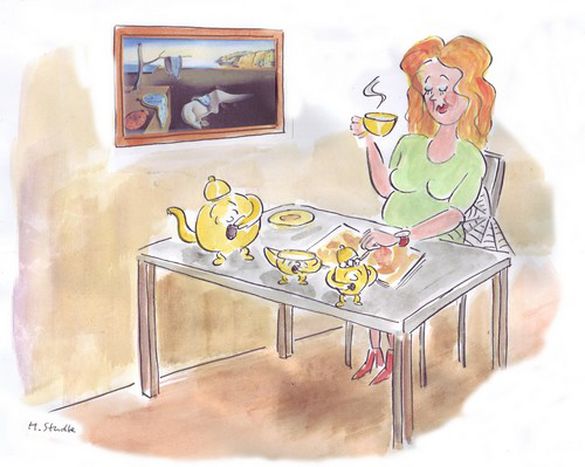
Waiting for Godot
Published on
Translation by:
 angelina robinson
angelina robinson
How do you 'stand someone up' - miss a date or meeting with someone - in other European langages? From the Portuguese to the Dutch, learn the comical expressions
In one scene in the film Runaway Bride, the bride Maggie (Julia Roberts) flees the church. The look of horror with which her intended husband is left standing at the altar is a painful expression, which gets quite close to that painted on our faces when somebody cancels a date or meeting at the last minute. Not for nothing do the Spanish use the expression Me quedé compuesto y sin novia to describe that state, which translated literally, means, ‘I was left all dressed up and ready to go but without the bride’.
In Italy, packages or tons are thrown at the waiting. The allusion is to the pain – even if only metaphorically speaking - caused by the absentee. Naturally, pained reactions are not slow in coming. In Italian, the deserted exclaims furiously mi ha dato la buca (‘He/ she pushed me into a hole’) and in Portuguese he accuses the other of leaving him a pot lid (deu uma tampa). The French, however, prefer animal metaphors and complain of having been left a rabbit (il m’a posé un lapin). Apparently, the saying dates back to sixteenth century France, when people used to have roosters or rabbits sent to whoever it was they could not after all meet. In the Netherlands, however, cats are sent: Zijn kat sturen.
Animals aside, while in English the expression is to stand someone up, in German the deserted’s fate is described more graphically: wie bestellt und nicht abgeholt (‘as if ordered but not collected’). The longer the wait, the more graphic the description of the waiting person: like a begossener Pudel, or a drenched poodle. But the unluckiest is he who – still in German – waits till he turns black (wartet, bis er schwarz wird), or – in Italian now – till he starts to go mouldy (fino a fare la muffa). In such cases the Germans make the surprisingly English suggestion that you wait and have a cup of tea (abwarten und Tee trinken), while the Portuguese recommend you wait sitting down (esperar sentado), as the awaited usually doesn’t end up coming anyway.
Translated from Aspetta e spera


